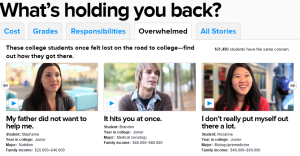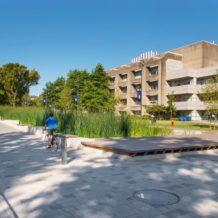Description
The post-secondary experience for students and other campus members involves all aspects of living and learning both in and outside the classroom. Students and employees alike are challenged across multiple developmental domains as they strive to build relationships, live more independently, understand themselves and clarify future directions, all the while managing their academic and occupational demands. Self-management competencies and coping skills strengthen members’ resilience and ability to manage the multiple demands of life in this academic setting. They also decrease vulnerability to mental health issues such as depression and anxiety.
The following self-management competencies and coping skills strengthen members’ capacity to flourish; to manage the range of demands they face and find meaning, purpose and satisfaction in their lives in advanced education:
- Intrapersonal development: realistic self-appraisal, self-understanding and self-respect; identity development; commitment to ethics and integrity; and spiritual awareness.
- Interpersonal competence: understanding others, meaningful relationships; interdependence; capacity for collaboration; and effective leadership.
- Humanitarianism and civic engagement: understanding and appreciation of cultural and human differences; social responsibility; global perspective; and sense of civic responsibility, acceptance of responsibilities inherent in community membership.
- Practical competence: pursuing goals; communicating effectively; managing personal affairs; maintaining health and wellness; managing emotional responses.
Examples
- Prepare students for transition to post-secondary experience by providing orientation and adaptation skills.
- Training for staff/faculty/students on developmental theory relevant to a young adult population.
- Structured peer helper programs to provide support in self-management skill development including programs operated by trained and supported peers with lived experience of mental health concerns.
- Provide opportunities for students to engage outside the classroom that encourage personal development and acknowledge them as learning outcomes in co-curricular learning.
- Courses and workshops on relationship building and emotional management.
- Engaging, interactive sessions on a harm reduction approach and personal protective behavioral strategies in relation to substance use.
Key Considerations
- In what ways does your campus promote member involvement in programs designed to build self-management competencies?
- How does your campus support sustainable development of peer support and mentoring programs?
- How does your campus promote integrated learning with intentional, structured opportunities for reflection?
- Are programs and resources fully accessible for all members?
- What mediums (web, in person, group, individualized) are used for the delivery of these programs and resources? Are these sufficient?
- How does your campus increase collective skill around shared management of opportunities and constraints in regard to members’ mental health (including substance use)?
Key Resources













